Eros + Massacre is a japonais film of genre Drama directed by Yoshishige Yoshida with Mariko Okada
Eros + Massacre (1969)
エロス+虐殺 (Erosu purasu Gyakusatsu)
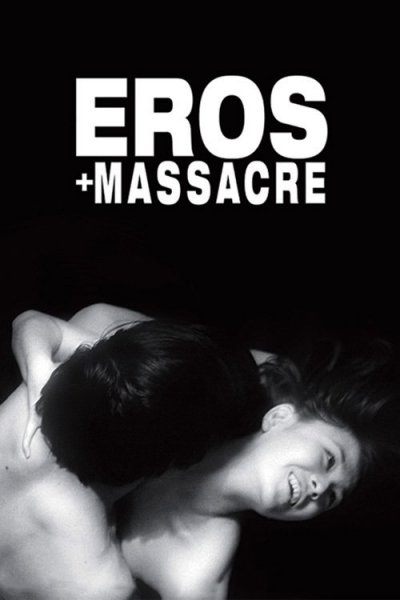
If you like this film, let us know!
- Infos
- Casting
- Technical infos
- Photos
- Videos
- Film quotes
- Characters
- Music
- Awards
Length 3h22
Directed by Yoshishige Yoshida
OriginJapon
Themes Films about anarchism, Seafaring films, Politique, Films about sexuality, Transport films, Erotic films, Political films
Rating73%










Eros + Massacre (エロス+虐殺, Erosu purasu gyakusatsu) is a Japanese black-and-white film released in 1969. It was directed by Yoshishige Yoshida, who wrote it in cooperation with Masahiro Yamada. It is the first movie in Yoshida's trilogy of Japanese radicalism, followed by Heroic Purgatory (1970) and Coup d'Etat (1973).
It is considered to be one of the most representative movies from the Japanese New Wave movement, and often one of the finest Japanese movies. David Desser named his book on the subject after Eros + Massacre. The movie touches upon many themes, such as free love, anarchism and the relationship between the past, the present and the future. Although the movie is a biography of anarchist Sakae Ōsugi, Yoshida states that he didn't focus on Ōsugi as a historical character per se, but rather on how reflecting on the present influences reflecting on the future.
Like most of Yoshida's films, Eros + Massacre is characterized by the immense visual beauty, the appearance of the director's wife, actress Mariko Okada, and richness in psychological and historical complexities.
Synopsis
The film is a biography of anarchist Sakae Ōsugi, who was assassinated by the Japanese military in 1923. The story tells of his relationship with three women: Hori Yasuko, his wife; Noe Itō, his third lover, who was to die with him; and his jealous, second lover, Masaoka Itsuko, a militant feminist who attempts to kill him in a tea house in 1916. Parallel to the telling of Ōsugi’s life, two students (Eiko and Wada) do research on the political theories and ideas of free love that he upheld. Some of the characters from the past and from the present meet and engage the themes of the movie.Actors
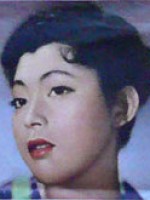
Mariko Okada
(Noe Ito / Mako Ito)

Toshiyuki Hosokawa
(Sakae Osugi)

Yūko Kusunoki
(Itsuko Masaoka)

Yoshisada Sakaguchi
(Araya Kimura)
Comments
Leave comment :
Suggestions of similar film to Eros + Massacre
There are 29 films with the same actors, 14 films with the same director, 70029 with the same cinematographic genres (including 102 with exactly the same 3 genres than Eros + Massacre), 19888 films with the same themes (including 0 films with the same 7 themes than Eros + Massacre), to have finally 70 suggestions of similar films.If you liked Eros + Massacre, you will probably like those similar films :

Heroic Purgatory (1970)
Directed by Yoshishige Yoshida
Origin Japon
Genres Drama
Themes Seafaring films, Films about sexuality, Transport films, Erotic films
Actors Mariko Okada
Rating70%





Rikiya Shoda est un ingénieur de l’Agence de l’énergie atomique japonaise. Un jour, sa femme Nanako rentre à la maison avec Ayu, une adolescente qu’elle a trouvée en ville. Un homme prétendant être son père vient pour la reprendre. Ayu lui répète que Rikiya and Nanako sont ses parents. A travers ce désaccord, Rikiya se rappelle sa jeunesse révolutionnaire.

Women in the Mirror (2003)
, 2h4Directed by Yoshishige Yoshida
Origin France
Genres Drama
Themes Medical-themed films, Seafaring films, Transport films, Aviation films, Films about psychiatry, Films about disabilities, Political films
Actors Mariko Okada, Yoshiko Tanaka, Hideo Murota, Mirai Yamamoto
Rating70%





Aï Kawase, la veuve d'un médecin, vit dans la proche banlieue de Tōkyō avec sa petite-fille, Natsuki. Miwa, la mère de celle-ci, a disparu, sans laisser de traces, vingt-quatre ans auparavant. Un jour, on annonce que l'on a retrouvé une femme, Masako Onoue, arrêté pour le rapt d'une fillette, en possession du livret de famille de Miwa. Mais, Masako est devenue amnésique. Un nom seulement habite encore sa mémoire : celui d'Hiroshima, endeuillée par l'explosion nucléaire en 1945. Les trois femmes vont faire un voyage dans cette ville pour essayer de reconstruire leur histoire...
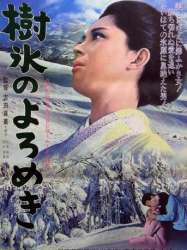
Affair in the Snow (1968)
, 1h37Directed by Yoshishige Yoshida
Genres Drama, Romance
Actors Mariko Okada, Isao Kimura, Miyoko Akaza, Yukio Ninagawa
Rating68%





Gérante d'un salon de coiffure à Sapporo, Yuriko part en voyage avec Sugino, son amant. Alors qu'ils roulent dans le froid et la neige, Yuriko lui avoue qu'elle est venue avec l'intention de rompre avec lui. Persuadé qu'il y a un autre homme, rongé par la jalousie, Sugino décide de la tuer au lac de Shikotsuko. Mais Yuriko lui apprend qu'elle est enceinte...
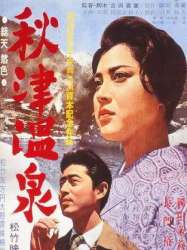
Akitsu Hot Springs (1962)
, 1h53Directed by Yoshishige Yoshida
Genres Drama, Romance
Actors Mariko Okada, Hiroyuki Nagato, Sumiko Hidaka, Sō Yamamura, Jūkichi Uno, Eijirō Tōno
Rating71%





The film is set at the Akitsu health spa. Just after World War II, Shusaku Kawamoto (Hiroyuki Nagato) who is suffering from tuberculosis, has come to Akitsu to die. One young girl, Shinko (Mariko Okada), refuses to let him and invigorates him on the slow path to recovery. They fall in love, and in one of his darker moments, Shusaku asks Shinko to join him in double suicide. She accepts his love but not ready to die. Neither, it transpires, is Shusaku, and slowly they part. Time passes, Shinko finds out that Shusaku is married with a child, and he seems to have no interest in her any more.

Woman of the Lake (1966)
, 1h38Directed by Yoshishige Yoshida
Origin Japon
Genres Drama
Actors Mariko Okada, Shinsuke Ashida, Shigeru Tsuyuguchi
Rating72%





Dégoutée par son mari, Miyako entretient une relation adultère avec le jeune Kitano. Un soir, celui-ci demande à la photographier nue. Elle accepte, mais les négatifs lui sont dérobés. Soumise au chantage d'un inconnu, Miyako n'a alors d'autre choix pour les récupérer que d'obtempérer, et prend le train pour Katayamazu Onsen...

Farewell to the Summer Light (1968)
, 1h32Directed by Yoshishige Yoshida
Origin Japon
Genres Drama, Romance
Actors Mariko Okada
Rating67%





À l'aube d'une carrière universitaire, l'architecte Kawamura passe des vacances en Europe. À Lisbonne, il lie connaissance avec Naoko Toba, une importatrice d'objets d'art. Profondément ébranlée par la disparition de ses parents lors du bombardement de la ville de Nagasaki, Naoko mène une vie d'apatride après avoir volontairement oublié son pays d'origine. Kawamura est, pour sa part, hanté par la vision d'un dessin de cathédrale entrevu à Nagasaki des années auparavant. Retrouver la cathédrale représentée dans ce croquis est, sans doute, la motivation principale de son voyage européen…
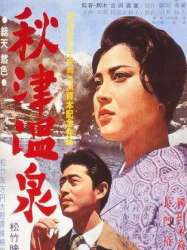
Akitsu Hot Springs (1962)
, 1h47Directed by Yoshishige Yoshida
Origin Japon
Genres Drama, Romance
Actors Mariko Okada, Hiroyuki Nagato, Sumiko Hidaka, Jūkichi Uno, Sō Yamamura, Eijirō Tōno
Rating71%





1945. La fin de la guerre approche. Sur les conseils d'une femme rencontrée fortuitement, Shūsaku, un étudiant souffrant d'une pneumonie, se rend dans un onsen, situé dans les montagnes. Là, il ne songe qu'à mourir en paix. Mais, Shinkō, une jeune fille débordant d'énergie, lui insuffle le goût de la vie. Grâce à elle, il est sauvé. Le jour où la défaite du Japon est annoncée, Shinkō est profondément bouleversée et Shūsaku, ému, s'éprend d'elle. Ils souhaitent vivre ensemble, mais la mère de Shinkō ne veut pas d'un homme désargenté et sans perspectives. Shūsaku retourne à Tōkyō et finit par se marier. Durant dix-sept années, Shinkō, fidèle et amoureuse, le revoit par intermittence et espère toujours. Un jour, pourtant, Shūsaku lui rend visite, une ultime fois, pour lui annoncer, qu'étant muté dans une lointaine contrée, il ne la reverra plus.

Samurai I: Musashi Miyamoto (1954)
, 1h34Directed by Hiroshi Inagaki
Origin Japon
Genres Drama, Biography, Action, Adventure
Themes Seafaring films, Sports films, Théâtre, Transport films, Martial arts films, Samurai films, Films based on plays
Actors Toshiro Mifune, Rentarō Mikuni, Mariko Okada, Akihiko Hirata, Kaoru Yachigusa, Mitsuko Mito
Rating73%





Following the battle of Sekigahara, Takezo (Toshiro Mifune) and his friend Matahachi (Rentarō Mikuni) find themselves on the losing side. Instead of the grand victory and glory Takezo had anticipated, he finds himself a hunted fugitive, having to assist a severely injured Matahachi. The pair seek shelter with a widow and her daughter who unknown to them are connected to local brigands. The brigands soon show up and ask for tribute from what the women have stripped off dead samurai, and Takezo has to fight them off. Both women attempt to seduce Takezo but are rejected. The widow then tells Matahachi that Takezo tried to assault her and convinces him to escort her and her daughter to Kyoto. Matahachi agrees even though he loves (and is betrothed to) Otsu (Kaoru Yachigusa), a woman from his village.

Lumière & Company (1995)
, 1h28Directed by Gabriel Axel, Cédric Klapisch, Patrice Leconte, Claude Lelouch, Abbas Kiarostami, Andreï Kontchalovski, Youssef Chahine, Liv Ullmann, Wim Wenders, Costa-Gavras, Jacques Rivette, Theo Angelopoulos, Alain Corneau, Michael Haneke, Claude Miller, John Boorman, David Lynch, Francis Girod, Merzak Allouache, James Ivory, Spike Lee, Arthur Penn, Jerry Schatzberg, Jaco Van Dormael, Peter Greenaway, Gaston Kaboré, Idrissa Ouédraogo, Bigas Luna, Zhang Yimou, Régis Wargnier, Yoshishige Yoshida, Lucian Pintilie, Lasse Hallström, Helma Sanders-Brahms, Nadine Trintignant, Raymond Depardon, Vicente Aranda, Fernando Trueba, Ismail Merchant, Hugh Hudson
Origin Danemark
Genres Drama, Comedy, Documentary, Action
Actors Isabelle Huppert, Romane Bohringer, Bruno Ganz, Géraldine Pailhas, Ticky Holgado, Zinedine Soualem
Rating68%





40 réalisateurs ont tourné 52 secondes de leur choix sans son et en trois prises maximum avec la caméra originelle des frères Lumière.
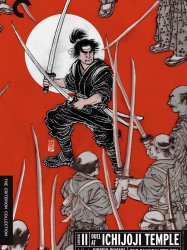 , 1h43
, 1h43Directed by Hiroshi Inagaki, Jun Fukuda
Genres Drama, Action, Adventure
Themes Seafaring films, Sports films, Transport films, Martial arts films, Samurai films
Actors Toshiro Mifune, Mariko Okada, Rentarō Mikuni, Kaoru Yachigusa, Kōji Tsuruta, Michiyo Kogure
Rating72%





Following Takezo's (Toshiro Mifune) capture by the Buddhist priest Takuan Sōhō, and stay in Himeji Castle. Takezo is granted his samurai name 'Musashi Miyamoto.' and leaves to search for enlightenment, leaving two messages for Otsu: "Soon I will be back" and "Forgive me." He goes to learn the way of the samurai and find those who will help him learn. But his first duel is with a challenger with a chain and a sickle who he fights and wins. After years on the road establishing his reputation as Japan's greatest fencer, Takezo travels to Kyoto. The now married Matahachi and Oko are settled there with Akemi. Otsu, having heard a rumor that Takezo is in Kyoto, has also travelled there to look for him. He meets Otsu who is in love with him but he tells Otsu he must follow what he loves more than her, the sword of the samurai.
 Connection
Connection